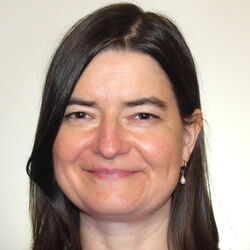Euclid Mission: Unveiling the Universe
Day: Tuesday 15 October
Time: 18:35 - 19:15 CEST
Location: Auditorium, Level 3, South Wing, MiCo Convention Centre
On the 1st of July 2023, the Euclid spacecraft was launched from Cape Canaveral. Euclid is a European science mission led by the European Space Agency (ESA) with contributions from NASA and from the Euclid Consortium (EC), which consists of more than 2500 scientists and engineers across 13 European countries, the US, Canada and Japan.
In December 2023, a few months after its launch, Euclid successfully completed its commissioning and performance verification phases. It has now started its dark Universe survey that will cover 1/3 of the sky in 6 years and will study the origin of the accelerating expansion of our Universe, helping constrain the nature of dark energy and dark matter. Euclid will gather a treasure trove of imaging and spectroscopic data, unprecedented by volume for a scientific space-based mission. It will enable state-of-the-art research not only in cosmology but over all disciplines in astronomy.
This highlight lecture will, first, provide a scientific and technical overview of this unique and award-winning space mission designed to explore the composition and evolution of the dark Universe. The calibration and performance verification activities conducted between the end of the commissioning and the start of the Euclid survey will then be described, pointing out the challenges that had to be overcome, how they were addressed, and the changes in the Euclid survey that they triggered. The lecture will also present the massive Euclid data processing and analysis effort led by the EC, which is necessary to achieve Euclid's challenging scientific objectives. This includes both space and ground-based observations of the Euclid Survey area. The processing will be conducted by a highly-distributed scientific ground segment spread over 9 different countries worldwide.
Euclid is a European mission, built and operated by ESA, with contributions from NASA. The Member States of ESA together with the EC are responsible for providing the scientific instruments, securing access to ancillary ground-based data, designing the Euclid survey and processing and analysing the Euclid scientific data. ESA selected Thales Alenia Space as prime contractor for the construction of the satellite and its service module, with Airbus Defence and Space chosen to develop the payload module, including the telescope. NASA provided the detectors of the Near-Infrared Spectrometer and Photometer (NISP) instrument. Euclid is a medium-class mission in ESA’s Cosmic Vision Programme.



